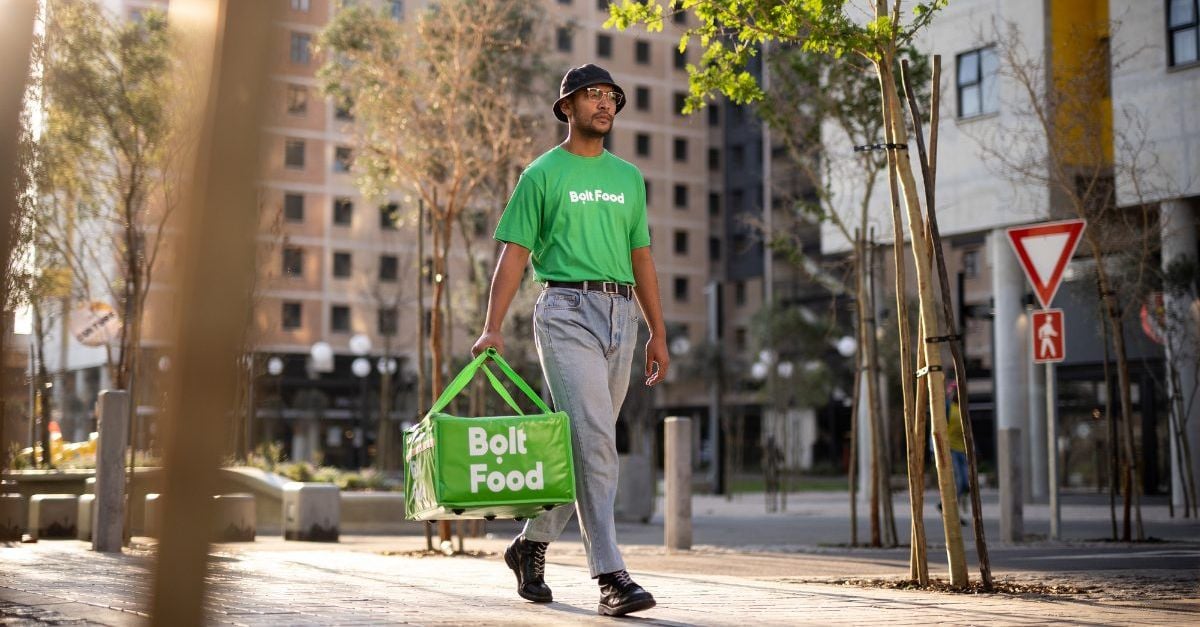In Africa, as in other parts of the world, food delivery is a fast-growing sector. Over the last five years, the market has experienced positive growth, benefiting from increasing food consumption in cities. However, this promising market is still full of ups and downs for both established companies and new entrants.
A consumer-driven trend
In Africa, the food delivery segment is experiencing a boom. Several factors have contributed to this, including opportunities for food retail driven by rapid urbanisation, a growing middle class and changing eating habits.
With rising average incomes and changing lifestyles, urban consumers are increasingly looking for quick and easy ways to eat rather than preparing meals at home or waiting for hours in restaurants or other food-service establishments.
Therefore, food delivery is a logical response, driven by online ordering platforms in many African cities. The pandemic accelerated the adoption of digital technologies, encouraging many restaurant operators to offer menu items that can be ordered online and to introduce contactless payment systems and mobile apps to increase customer convenience and safety.
Although the pandemic is behind us, this momentum is not over yet and is expected to continue generating revenue as consumers are increasingly attracted to easier and faster ways to shop. This trend is supported by increasing internet connectivity, smartphone usage, growing consumer confidence in online transactions and the emergence of secure electronic payment solutions.
A billion dollar business
Since 2017, the African food delivery market has grown significantly. According to Statista, sales in Kenya increased from $2 million (€1.84 million) to $36 million (€33.12 million) in 2020, while the South African market recorded $732 million (€673.44 million), the highest sales in Africa.
According to Statista data, online grocery delivery (OFD) revenue in Africa amounted to €6.89 billion in 2023 and is expected to reach €8.72 billion in 2024. Furthermore, it is forecast to grow to €15.44 billion by 2028, at a compound annual growth rate (CAGR) of 15.35%.
With a growing urban population and increasing demand for convenient and fast food options, Nigeria is expected to lead the region in online food delivery revenue, overtaking South Africa.
This positive outlook has attracted numerous companies and led to increased investments over the last five years to expand their presence or enter the business.
Major food delivery services in Africa include Uber Eats, Estonian food delivery startup Bolt Food and Spanish startup Glovo, which provide high-quality service to restaurants and eateries across Africa.
These three major companies have the largest market share, followed by other homegrown food companies such as ChowDeck in Nigeria, Mano in Angola, Gooo Delivery and Elmenus in Egypt. While Uber Eats operates in Kenya and South Africa and offers over 400 restaurants on its app serving both local and international specialties, Bolt and Uber Eats are present in more markets.
Bolt Food opened a new African headquarters in Nairobi in 2022 and now supplies five African countries (Kenya, Uganda, Tanzania, Ghana and Tunisia). Glovo offers food delivery to customers in major cities in Kenya, Nigeria, Tunisia, Morocco, Ivory Coast, Algeria and Senegal.
Big challenges
While the outlook for the African food delivery market is positive, it also presents some challenges for many operators. The coronavirus pandemic led to the emergence of new players and the strengthening of existing ones, increasing competition.
However, in this market, where most companies target the same middle-class consumer profiles, profits are hard to come by. The race for customers requires large investments in marketing and a reduction in operating costs while keeping prices affordable for consumers. In this context, many operators have been forced to rethink their strategies, either trying to gain market share or, in extreme cases, exit the market to limit losses.
This is especially true of Jumia, a good example of the challenges faced by companies in this highly competitive segment. The company, which operated in food delivery in seven African countries (Kenya, Tunisia, Uganda, Morocco, Nigeria, Algeria and Ivory Coast), announced its exit from the business in December 2023.
Since entering the market in 2012, Jumia Food says it has never been profitable, citing falling commissions and a trend toward higher marketing costs as reasons. Other major players in the African food delivery market have also ceased operations in various countries over the past two years.
Bolt Food announced its exit from Nigeria and South Africa in December 2023 to concentrate its resources and maximize its overall efficiency in other regions. In addition, Glovo decided to cease operations in Ghana in May 2024. The company, which invested $3.7 million (€3.40 million) in 2022 to expand its operations in all Ghanaian regions, explained that this strategy had proven unprofitable due to high inflation and increased taxation.
This reordering of the market reminds all players that food delivery in Africa is one of the most demanding in the world. In a turbulent business environment, those players who are flexible in both their approach and their adaptation strategy will come out on top.
Yet it is also a sector that holds great growth potential for those who are ready for the adventure.

